|
Syria's FM claims government abiding by truce By KARIN LAUB, Associated Press – 35 minutes ago BEIRUT (AP) — Syrian forces fired a barrage of mortar shells at an opposition stronghold Wednesday even as the foreign minister promised the regime would respect a week-old cease-fire and withdraw troops from urban centers in line with an international peace plan.
A troop pullback is a key provision of special envoy Kofi Annan's six-point plan to end 13 months of bloodshed in Syria, but the regime has ignored last week's deadline of getting tanks and troops off the streets. Instead, Syrian soldiers continued to pound rebellious areas with artillery after an initial lull at the start the truce a week ago Thursday, raising growing international concerns that Annan's plan will fail. In the latest violence Wednesday, activists said regime forces fired mortar shells at the central city of Homs, killing at least two civilians and sending thick gray smoke into the air as loud booms rang across residential areas. The state news agency also said two separate roadside bombs killed 10 members of the security forces and a civilian in northern Syria. SANA reported that six soldiers were killed and 11 wounded in a blast in the village of Mastouma in Idlib province, while a second explosion in the Aleppo region killed four members of the security forces and a civilian. The attacks were a sign that both sides have violated the cease-fire and could prompt the regime to intensify its assault on rebellious areas. Syria's government has portrayed the uprising as a foreign-led conspiracy by terrorists and thugs. Despite persistent violence, the international community is reluctant to declare the cease-fire dead, in part because it is seen as the only way to end bloodshed triggered by an uprising against President Bashar Assad. As part of Annan's road map, a halt to fighting is to be followed by political talks between Assad and Syria's opposition. Other options, such as foreign military intervention, arming Assad's opponents and economic sanctions, have either been discarded or offer no quick solution. A deadlocked international community would be hard put to offer an alternative if it were to acknowledge the collapse of the cease-fire. Syrian Foreign Minister Walid Moallem insisted Wednesday that Syria is keeping its commitments. Syria will "continue to cooperate" with Annan's efforts, the Chinese Foreign Ministry quoted Moallem as saying after he met with his Chinese counterpart in Beijing. Syria will "honor and implement Annan's six-point proposal, fulfill its cease-fire, troop withdrawal and other relevant commitments and begin cooperation with the U.N. monitoring team," Moallem said according to the statement. China, Russia and Iran have been Syria's staunchest allies. U.N. Security Council members Russia and China have twice shielded the Assad regime from international condemnation, but also demanded that Syria comply with the Annan plan. After Russian Foreign Minister Sergey Lavrov told Moallem last week that Syria could do better, his Chinese counterpart, Yang Jiechi, urged his Syrian visitor Wednesday to make the Annan plan work. Yang said he hoped Syria would "actively cooperate in putting in place the cease-fire monitoring mechanism, and sincerely embark on a process of inclusive political dialogue and reform to bring about a just, peaceful, and appropriate resolution to the Syrian question." Yang's remarks were more pointed than in past, an indication that Beijing is looking for progress toward a reduction of violence that might dilute some of the criticism China has come under for blocking U.N. action on Syria. Meanwhile, U.N. chief Ban Ki-moon was intensifying efforts to get a large contingent of observers on the ground to salvage the truce. He said a team of 250 monitors, as originally envisioned, might not be sufficient for the job. He has also asked the European Union for planes and helicopters to make the mission more effective. Ban is to report to the Security Council on Wednesday. Moallem said in Beijing that Syria would be ready to provide helicopters, but made no reference to Ban's request to the EU. "Syria is ready to make its air force available for the use of this delegation," Moallem said. "As we have understood, what is needed are helicopters to evacuate the injured. If that is the issue, then we have the capabilities in our air force to carry this out." An advance team of half a dozen observers has been in Syria since the weekend. On Tuesday, the team went on its first field trip to the southern city of Daraa where the activists reported protracted fighting between rebel gunmen and Syrian soldiers. On Wednesday, an explosion was heard in the city, followed by a gunbattle, said the Syrian Observatory of Human Rights, an activist group based in Britain. The head of the team, Col. Ahmed Himiche, said Wednesday that he expects an additional two dozen monitors by Thursday. He said the team would be in touch with both sides in conflict, but did not comment on the trip to Daraa. Rami Abdul-Rahman, the head of the Observatory, said he and other opposition activists support the truce plan despite widening regime attacks that have claimed dozens of lives in the past week. In Homs, battered by artillery for weeks, with just a brief respite last week, mortar shells fell every 10 to 15 minutes on Wednesday morning, he said. The Observatory said at least two civilians were killed. "If the Annan plan fails, what happens?" Abdul-Rahman said. "There will be fighting between armed people and the Syrian army. Everyone loses .... Syria will disintegrate. The Annan plan is the last chance for us." Separately, government-run Syrian television broadcast footage showing Assad and his wife Asma visiting an aid collection center for people displaced by the violence in Homs. The report, aired Tuesday, showed Assad and his wife being mobbed by cheering supporters as they entered the al-Fayha stadium where volunteers were collecting and packing aid donations. Associated Press writer Scott A. McDonald in Beijing contributed reporting.
0 Comments
Israeli TV report shows air force gearing up for Iran attack, says moment of truth is near ‘IAF expects losses, and knows it can’t destroy entire Iranian program’ By Greg Tepper April 15, 2012, 11:49 pm 748 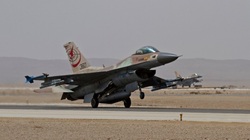 A major Israel TV station on Sunday night broadcast a detailed report on how Israel will go about attacking Iran’s nuclear facilities in the event that diplomacy and sanctions fail and Israel decides to carry out a military strike. The report, screened on the main evening news of Channel 10, was remarkable both in terms of the access granted to the reporter, who said he had spent weeks with the pilots and other personnel he interviewed, and in the fact that his assessments on a strike were cleared by the military censor. No order to strike is likely to be given before the P5+1 talks with Iran resume in May, the reporter, Alon Ben-David, said. “But the coming summer will not only be hot but tense.” In the event that negotiations fail and the order is given for Israel to carry out an attack on Iranian nuclear facilities, “dozens if not more planes” will take part in the mission: attack and escort jets, tankers for mid-air refueling, electronic warfare planes and rescue helicopters, the report said. Ben-David said the Israel Air Force “does not have the capacity to destroy the entire Iranian program.” There will be no replication of the decisive strikes on Iraq’s Osirak reactor in 1981 or on Syria in 2007, he said. “The result won’t be definitive.” But, a pilot quoted in the report said, the IAF will have to ensure that it emerges with the necessary result, with “a short and professional” assault. Ben-David said that if negotiations break down, and Iran moves key parts of its nuclear program underground to its Qom facility, the IAF “is likely to get the order and to set out on the long journey to Iran.” “Years of preparations are likely to come to realization,” he said, adding that “the moment of truth is near.” Ben-David interviewed several squadron leaders, pilots and other officers. He noted that some of the IAF personnel, “it is likely, will not return from the mission.” An officer named Gilad said it would be “naive” to think there would be no losses. The IAF is said to be worried about the advanced anti-aircraft systems that Russia has sold to countries in the region, the report said. Among those systems, the SA 17 and 22 in Syria and Iran present a challenge. According to the report, it’s the older versions of the F-15 that can fly further than any other plane in Israel’s arsenal, and this puts them on the front line of any potential attack. One pilot said in the report that the F-15 “is a plane with a very wide range of operation — a combination of relatively energy-efficient engines, and significant flightworthiness regarding weapons and fuel.” The IAF has a full-sized unmanned plane, the “Eitan,” that is said to be able to fly to Iran, the report indicated. “This plane can do all that is required of it when the order is given,” a pilot said, without elaboration. The attack, the report said, would presumably trigger a war in northern Israel, with missile attacks (presumably from the Iranian-proxy Hezbollah in Lebanon). “There will be no tranquility and peace anywhere in Israel,” Ben-David said. This could be the first full-scale war the IAF has fought in nearly 30 years, the report stated. Pilots had already been told where their families would be moved, away from their bases, for safety, the report said. "THIS ARTICAL SHOULD BECALLED WHEN IT'Z ON IT'Z ON"THE BEYOND IZ GOOD THO.RPT-Beyond monitors, world deeply divided on Syria 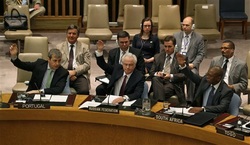 * Few believe unarmed monitors will halt Syria violence * West still wants regime change, Russia, China disagree * US, allies perhaps shifting towards much longer game By Peter Apps, Political Risk Correspondent WASHINGTON, April 14 (Reuters) - With a cease-fire barely holding and the deployment of unarmed foreign observers expected to ease but not end months of violence, world powers are still struggling to find a longer-term strategy for Syria. After heavy diplomatic wrangling, the United Nations Security Council on Saturday finally approved the deployment of what could be several hundred monitors amid reports of sporadic ongoing fighting. In theory, the world's most powerful countries, the government of President Bashar al-Assad and much of the Syrian opposition have all signed up to a multipoint plan formulated by former U.N. chief Kofi Annan. But the reality remains much more complex. While Moscow and Beijing have repeatedly said they want to avoid a Libya-style externally backed regime change, the United States, Britain and France still say they want Assad gone. "The main focus at the moment is the ... rapid deployment of monitors," said one Western official on condition of anonymity. "That's a priority, but it's not the only one ... at the end of the day, do not see a future for Syria with Assad in charge. We are in this for the long haul." But officials concede they have few immediate tools with which to make that happen. Even a U.S. plan to provide "nonlethal" support to opposition fighters could end up being shelved, some suspect, largely because the rebels remain so disunited and ineffective. U.S. pressure, insiders say, has already deterred Saudi Arabia and Qatar from making good on long-running talk they might provide weapons. For now, Annan, Western powers and their Arab allies say Assad remains in breach of much of the peace plan. Privately, many Western diplomats worry his strategy may be to give just enough to drive a wedge between them and a much more reluctant Russia and China. "The game for the weekend is watching whether the ceasefire holds and the monitors are approved," said another Western official. "After that it gets more complicated." SUPERPOWER POLITICS The most realistic immediate hope, officials say, would be that Assad's forces cease use of heavy weaponry. But if an earlier Arab league monitoring attempt in Syria - or other previous similar missions in Sri Lanka and Kosovo - are anything to go by, unarmed observers might struggle to stop killings, abductions and use of snipers. Certainly, few believe Syria will genuinely follow through to withdraw troops from urban areas or allow peaceful protest. For world powers, the true challenge will come if the monitors report a fall in violence but accuse Syria of ignoring other areas of Annan's plan. At that stage, Western officials say they would return to the Security Council with a much stronger resolution, likely based on drafts previously rejected by Russia and China. That could include much tighter sanctions and perhaps even internationally protected "humanitarian corridors." Their hope would be that Moscow and Beijing, having invested their own diplomatic capital in Annan, would lose patience with Assad and back tougher action. But some doubt that will happen. On Friday, a Russian news agency reported Moscow had decided to keep a warship permanently stationed off the Syrian coast "on a permanent basis." While another Russian official said the move had "nothing to do" with events in Syria, it appeared a direct challenge to any foreign states still mulling intervention. Others, however, believe Russia could yet abandon Assad if given guarantees that its interests - particularly access to the Tartus naval base - were respected. Diplomats say senior Russian officials have briefed foreign counterparts that they ultimately expect him to fall and be replaced with another similar member of the Alawite minority. PLAYING A LONGER GAME? That would still not be enough to either meet the requirements of the Annan plan nor the demands of Western powers. Privately, however, some officials already wonder how realistic their regime change goals might be. At the heart of the policy challenge, they say, is Syria's opposition - widely regarded as chaotic even compared to Libya's notoriously poorly coordinated rebels. "Your problem is that they are still a very disparate array of groups," said the second Western official. "You have to be sure you are not doing more harm than good." With some reports opposition fighters themselves may have broken the ceasefire, keeping them to the Annan plan could also be a challenge. "It's going to be a question of the opposition demonstrating that it's peaceful so that he (Assad) will start to withdraw," said another Western diplomat. "Now, if none of that works, we're back to where we were." Turkey, analysts say, could yet send forces into Syria to create a buffer zone if cross-border firing and refugee flows continue. But, in general, officials say foreign powers have little appetite for military action. Some believe the United States in particular may be girding itself for a much longer game. "The policy of this administration is much more about looking at where you want to be in three or four years time and then working out how you get there than it is about managing the here and now," said Jon Alterman, a former U.S. State Department official and now chair of strategy at the Washington think tank the Center for Strategic and International Studies. "In the longer term, there is a feeling that sanctions will have an effect, that China and particularly Russia can be persuaded to move their position. In the short term, there are real limits to what can be done." PETER MCKAY: Powerful states lecturing Iran already have deadly weapon arsenals By Peter McKay UPDATED: 20:17 EST, 19 February 2012 Writing in the London Review Of Books about nuclear non-proliferation politics, two British academics, Campbell Craig and Jan Ruzicka, ask: ‘Why should Iran or North Korea respect the principle of non-proliferation when the most powerful states lecturing them possess such enormous arsenals?’ Why indeed. Warships from Iran enter the Mediterranean via the Suez Canal. A U.S. navy flotilla, including the giant carrier USS Abraham Lincoln, cruises through the Straits of Hormuz, within sight of the Iranian coast. The Israelis and Americans threaten to bomb Iran, creating a new Middle East war. They say this might be necessary to delay or destroy the regime’s ability to build nuclear weapons. Though the U.S. and Israel possess nuclear weapons, both say Iran must not be allowed to have any because its president, Mahmoud Ahmadinejad, has vowed to wipe Israel off the face of the earth. Anti-war groups deny he ever said such a thing, claiming that the speech in question — Ahmadinejad’s first as Iran’s newly elected president — has been mistranslated. According to the website Antiwar.com, he spoke in Farsi and quoted what the late Ayatollah Khomeini, father of the 1979 Islamic Revolution, had said about Israel. This is Antiwar.com’s translation of the key sentence: ‘Mam (Khomeini) ghoft (said) een (this) rezhim-e (regime) ishghalgar-e (occupying) qods (Jerusalem) bayad (must) az safheh-ye ruzgar (from page of time) mahv shavad (vanish from).’ Whom do we believe? Ahmadinejad is clearly hostile to Israel. So are the Arab nations with which Iran is allied. But he knows he couldn’t fire nuclear missiles at Israel without the certainty Iran would be obliterated by the U.S. Washington hawks who want Iran bombed say Ahmadinejad is mad enough to risk nuclear Armageddon in order to destroy Israel. But does that also go for the clerics who enjoy supreme power or the country’s educated, middle-class minority yearning not for a mushroom cloud but the freedoms enjoyed by citizens in the West? Danger: Ahmadinejad and other government ministers visit Tehran's nuclear reactor, a likely source for any weapon development Explosive: Iran's home-built surface-to-surface Fateh 110 missile blasts into the sky in a test firing in the desert When not citing Ahmadinejad’s alleged threat to wipe out Israel, the Americans mention the 1968 Non-proliferation of Nuclear Weapons Treaty (NPT), which most of the world’s sovereign states signed. Those nations without nuclear weapons were promised help in developing peaceful atomic energy while the nuclear club pursued disarmament. Soon afterwards, India and Pakistan acquired nuclear weapons. So did North Korea. Iraq’s Saddam Hussein was suspected of having them. So Iraq endured sanctions, a war, an occupation and the deaths of hundreds of thousands of civilians before it was conceded that Saddam didn’t have nuclear weapons. During the Cold War, there was no hope of persuading the U.S., the Soviets or China of giving up their missiles. Neither was there much appetite for doing so when the Cold War ended. Non-nuclear nations worked it out in the end: the NPT regime was rigged to maintain the status quo. In 2010, the so-called New Start (Strategic Arms Reduction Treaty) agreement between America and Russia was ratified. New Start was vital, said the Americans, ‘because everything we need to do in the future, starting with halting the Iranian programme, requires working with Russia and showing we are serious about bringing down our own nuclear stockpiles’. How serious are they? Not very. The Obama administration has committed $85 billion to modernising — i.e., making even more lethal — the U.S. nuclear arsenal between now and 2020. Obama wouldn’t have got New Start through the Senate without committing his administration to improving America’s bomb power. A catchy new name was devised for non-proliferation — Global Zero. Some 300 political, military, business, faith and civil leaders and 400,000 citizens worldwide were recruited to work for the ‘verified elimination of all nuclear weapons’. Which won’t happen until something even more deadly is invented in their place. Read more: http://www.dailymail.co.uk/debate/article-2103492/Iran-nuclear-weapons-Why-bomb.html#ixzz1s1p3oxvr 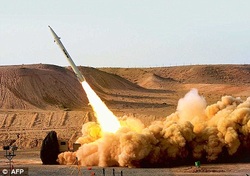 SO MANY ARE GETTING ON BOARD WITH IRAN IZ THE WORLD TELLING OBAMA SOMETHING ONE THING THEY CAN TELL HIM AND THAT IZ GIVE ME MY NOBEL PEACE PRIZE BACK AND HERE IZ A REAL ROCKET. KOREA JUST A. 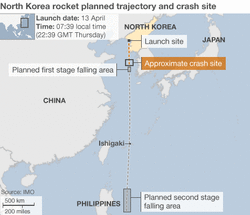 JUST A DISTRACTION FOR WHAT IZ REALLY GOING ON IN THAT REGION. ALSO TO KEEP THE PEOPLES MINDS AND HEARTS OFF WHAT IZ REALLY GOING ON IN THIS COUNTRY. HOW THEY ARE TAKING FORM THE POOR TO FEED THE RICH AND ALLOWING THE POOR TO TAKE FROM THEM SELFS TO FEED THE MEDIA TO DISTRACT YOU FOR WHAT IZ TO COME . Dow Drops Over 1% for Second Straight Week |
PTAH
GOT ISHD ON BY WHAT I CREATED AND REPRESENTED THAT IZ EVERYBODY .NOW I KNOW THAT EVEREYBODY TRULY AIN'T GOING,(MAYBE EYE MIGHT SEE WHAT THE END GONE BE).KNOW MATTER HOW THEY DO YOU JUST KNOW THAT SOME PEOPLE ARE STILL HUSTLIN BACKWARDS Archives
October 2012
Categories |
|
|
- KAM
- don't jump into the pacific ocean or evacuate earth 'yeah nothing like that"
- sum moore
- Now it'z Our TIME
- The 1
- multipolar harmonicz
- laptop gate
- zaporozhye nuclear power plant news
- fukushima
- fallout/ radiation
- BOARDER BLOG
- terrorist state
- food now
- Climate change we must Change
- FOCUS FILMZ POLITICAL
- IZM GALLERY
- IZM TV/NEWS
- YOU KNOW WHO IT IZ
- ON YOUR BACK & BEYOND STYLE
- izm party
- Global biz
- ASCENDING MASTERS
- WHAT'Z UP WITH IT
- WORLD WIDE PEACE AND LOVE OR WAR
- JOURNEY OF PTAH
- INNOVATION
- tech/ cyber.S
- colonial semi yuanizm
- WHAT IZMIST DO
- GOLDEN AGE
- focus filmz
- cosmic alignment 2012
- THE PEACE AND LOVE FOUNDATION INC
- PROBLEMS IN LIES THE SOLUTION
- planet DISNEY
- melting pot
- fallout/radiation videos and info
- planet Elizabeth Taylor
- FOCUS FILMZ POLITICAL ON LOCATION
- we R the children
- books of knowledge
- Nu age
- TRUTHIZM" they will watch you die"
- CHEIF
- source of allmediaizm
- ptah messages from the beyond"
- COVID/19
- HEMP & CANOPY NEWZ
- CHINA BLUEIZM
- 4LIGHT IZ ZOUND

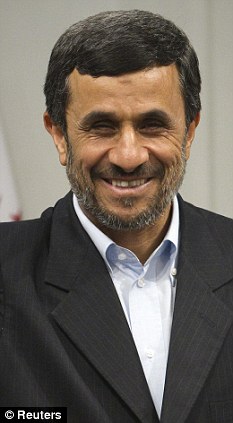
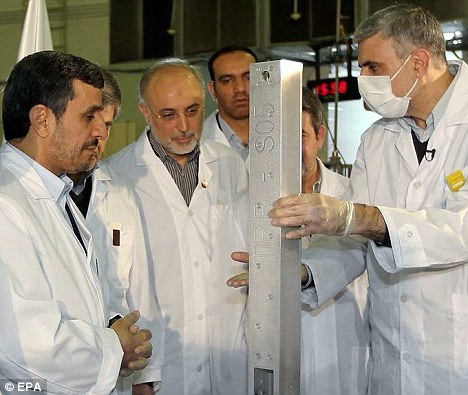
 RSS Feed
RSS Feed
